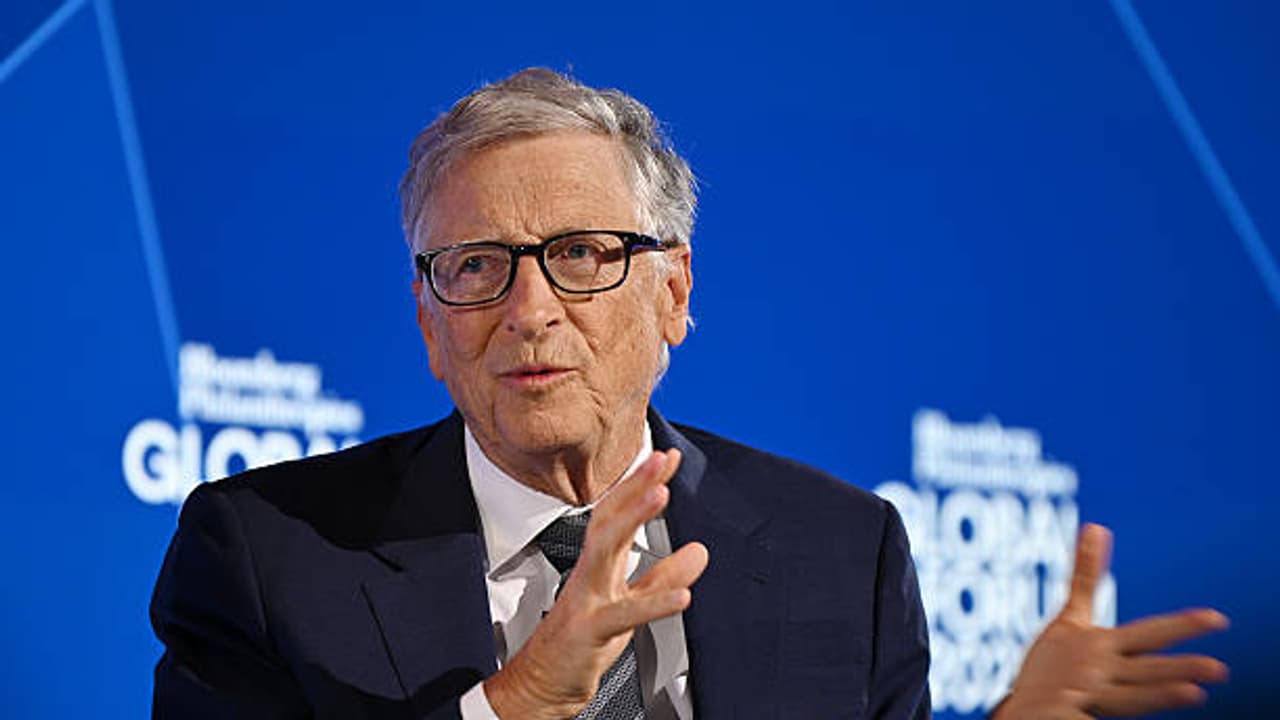If climate change isn’t going to doom the human race, what will? According to experts, the bleak reality is that humanity is much more likely to annihilate itself before the worst effects of climate change are felt.
Billionaire philanthropist Bill Gates has declared that climate change “will not lead to humanity’s demise.” Despite spending billions of dollars from his $122 billion fortune to fight global warming, the Microsoft co-founder now insists that world leaders should redirect their focus toward more immediate existential perils.
But if climate change isn’t the apocalypse, what is?
According to experts, humanity may be scripting its own downfall long before rising temperatures take their toll. From unregulated AI models to engineered bioweapons, scientists warn that mankind is creating the very tools that could erase its existence. Among all potential cataclysms, researchers say the most chilling threat remains the specter of a total nuclear war.
Dr. Rhys Crilley, an international relations expert at the University of Glasgow, told Daily Mail:
“The key difference is time: climate change unfolds over decades; nuclear war could end civilisation in the space of a few hours.”
He added, “Climate change is a slow-burning crisis that’s already reshaping our world but will get worse in the future, whilst nuclear weapons pose the possibility of instant, total devastation for the planet.”
Bill Gates sparks debate
Ahead of the UN COP30 summit in Brazil, Gates penned an open letter asserting that climate change is not humanity’s greatest threat.
While admitting that global warming will “hurt poor people more than anyone else,” he called the prevailing “doomsday outlook” misguided, writing, “People will be able to live and thrive in most places on Earth for the foreseeable future.”
Yet experts remain skeptical. They warn that survival itself could be at stake—not from heat, but from humanity’s reckless weaponry and ambition.
The Nuclear Nightmare
Dr. Crilley cautioned that the risk of nuclear war is not hypothetical: “These risks are not theoretical: the weapons exist, the tensions between nuclear-armed states are worsening, and it seems that nuclear weapon states are increasingly willing to use force to get what they want whilst threatening to use nuclear weapons.”
Even a limited nuclear exchange, scientists say, could trigger a “nuclear winter” that plunges Earth into darkness for years. Enormous firestorms from detonations would send soot and dust into the atmosphere, blocking sunlight and cooling the planet by up to 10°C for nearly a decade.
Studies suggest that even a “small” nuclear engagement involving 100 warheads could collapse the global food system, leading to two billion deaths from starvation within just two years.
Dr. Crilley warns, “There are over 12,000 nuclear warheads in the combined arsenals of the nuclear weapon states, so large-scale nuclear war would likely be an extinction event for the planet.”
“It’s clear to me that preventing nuclear war remains one of humanity’s most urgent responsibilities.”
The Rise of Engineered Bioweapons
Beyond nuclear threats, experts are sounding alarms over the rise of man-made pathogens. Since 1973, when scientists created the first genetically modified bacteria, biotechnology has advanced to the point where lethal viruses could be engineered with unprecedented precision—especially with AI’s growing role.
This raises fears that terrorist groups or rogue states could soon possess bioweapons capable of global catastrophe.
Even an accidental leak from a laboratory could unleash a pandemic far deadlier than anything seen before. Otto Barten, founder of the Existential Risk Observatory, told Daily Mail:
“Although natural pandemics remain a very serious risk, this is very likely not going to cause our complete demise. However, man-made pandemics might be engineered specifically to maximise effectiveness, in a way that doesn’t occur in nature.”
“The chance that ongoing democratisation of biotechnology leads to someone eventually trying and succeeding to create a pandemic that causes complete extinction is non-negligible.”
Climate Change — The Silent Multiplier
While Gates insists climate change won’t destroy humanity, some experts disagree. Researchers warn that global warming could still act as a “threat multiplier,” amplifying every other existential risk.
Dr. SJ Beard from Cambridge University’s Centre for the Study of Existential Risk told Daily Mail:
“There isn’t a feasible climate scenario in which we all die of heat exhaustion or drown in the rising ocean. However, climate change can still kill us indirectly.”
“It can destabilise the geopolitical situation and cause World War 3, it can motivate people to engage in dangerous geoengineering experiments, it could trigger pandemics, or it could disrupt food and other supply chains enough to collapse the global economy.”
As the planet faces intensifying droughts, floods, and superstorms, scientists fear resource scarcity could spark mass migrations and violent conflicts—especially between nuclear-armed states.
Dr. Crilley added, “Climate change can heighten tensions between nuclear-armed states, as crises driven by droughts, floods, or food insecurity could easily interact with existing geopolitical tensions, making miscalculation or escalation of conflicts more likely.”
(This article has been curated with the help of AI)
